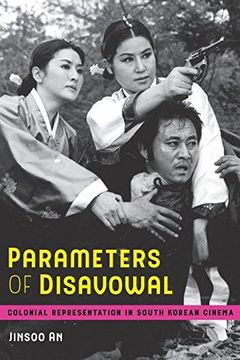Share
Parameters of Disavowal: Colonial Representation in South Korean Cinema (Global Korea) (in English)
Jinsoo An (Author)
·
University Of California Press
· Paperback
Parameters of Disavowal: Colonial Representation in South Korean Cinema (Global Korea) (in English) - Jinsoo An
$ 39.94
$ 49.93
You save: $ 9.99
Choose the list to add your product or create one New List
✓ Product added successfully to the Wishlist.
Go to My WishlistsIt will be shipped from our warehouse between
Monday, July 15 and
Tuesday, July 16.
You will receive it anywhere in United States between 1 and 3 business days after shipment.
Synopsis "Parameters of Disavowal: Colonial Representation in South Korean Cinema (Global Korea) (in English)"
A free ebook version of this title is available through Luminos, University of California Press’s Open Access publishing program. Visit www.luminosoa.org to learn more. The colonial experience of the early twentieth century shaped Korea’s culture and identity, leaving a troubling past that was subtly reconstructed in South Korean postcolonial cinema. Relating postcolonial discourses to a reading of Manchurian action films, kisaeng and gangster films, and revenge horror films, Parameters of Disavowal shows how filmmakers reworked, recontextualized, and erased ideas and symbols of colonial power. In particular, Jinsoo An examines how South Korean films privileged certain sites, such as the kisaeng house and the Manchurian frontier, generating unique meanings that challenged the domination of the colonial power, and how horror films indirectly explored both the continuing trauma of colonial violence and lingering emotional ties to the colonial order. Espousing the ideology of nationalism while responding to a new Cold War order that positioned Japan and South Korea as political and economic allies, postcolonial cinema formulated distinctive ways of seeing and imagining the colonial past.
- 0% (0)
- 0% (0)
- 0% (0)
- 0% (0)
- 0% (0)
All books in our catalog are Original.
The book is written in English.
The binding of this edition is Paperback.
✓ Producto agregado correctamente al carro, Ir a Pagar.

